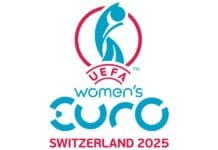Manchester United, a Premier League titan, is reportedly contemplating the dismissal of manager Erik ten Hag, echoing its managerial upheavals like the 2016 sacking of Louis van Gaal. This article investigates the potential sacking, spotlighting issues in club management, infrastructure, and strategy.
Historical Context
Similar to Louis van Gaal’s 2016 departure after winning the FA Cup, Erik ten Hag’s tenure might end despite his capabilities, reflecting the club’s focus on short-term results over stability.
Challenges for Erik ten Hag
- Inconsistent Performance:
- Despite his strategic acumen, Ten Hag has struggled with inconsistent performances, failing to solidify a top league position, which has stirred unrest among fans and stakeholders.
- Lack of Tactical Clarity:
- Critics point out that Ten Hag’s tactics seem unclear and inflexible, questioning his fit for managing a club of Manchester United’s prestige.
- Player Management Issues:
- There are reports of discord between Ten Hag and some key players, suggesting a disconnect that impacts team morale and unity.
- Stakeholder Pressure:
- The club’s executives are pressured to deliver swift success, influencing decisions like potential managerial changes.
Highlighting Erik ten Hag’s Position
Despite these challenges, it’s crucial to recognise that Erik ten Hag is a competent manager facing significant hurdles:
- Resistance from Players:
- Ten Hag’s strategies and directions have reportedly not been fully embraced by the team, which can cripple any manager’s ability to implement their vision effectively.
- Lack of Support from Management:
- The club management’s failure to back him consistently or mediate effectively in conflicts has compounded these issues, leaving Ten Hag in a precarious position.
Addressing Club-Level Problems
- Management and Strategic Failures:
- Frequent managerial changes and erratic transfer dealings reflect deeper decision-making flaws within the club, which need rectification for long-term success.
- Infrastructure Needs:
- Investing in better training facilities and youth development is crucial for sustainable competitive performance.
- Strategic Misalignment:
- Manchester United must develop a clear, long-term strategic vision, avoiding the constant tactical pivots that have plagued recent managerial tenures.
The potential departure of Erik ten Hag underscores deeper systemic issues at Manchester United. While instant results are crucial, the club’s long-term prosperity depends on addressing these foundational concerns and fostering a more supportive environment for the manager and team alike.
Further Reading




